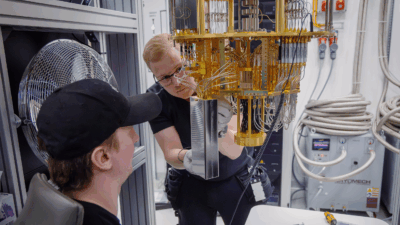Generative AI Consulting Roles Are On the Rise. Here’s Why.
Many enterprises are in a “phase of investigation” with AI deployment.

Sign up to get cutting-edge insights and deep dives into innovation and technology trends impacting CIOs and IT leaders.
Practically every enterprise is seeking to figure out where AI fits in – and how the tech will augment its workforce.
Data published last week by Hiring Lab, Indeed’s economic research arm, found that generative AI roles have grown rapidly in recent years, with many companies specifically seeking consultants with expertise in the technology. Management consultant roles accounted for 12.4% of all generative AI roles as of January 2025, up from 0.2% in January 2024.
That’s more than double the percentage of roles for machine learning engineers, software architects and data scientists, which each made up between 4.4% and 5.4% of all generative AI job postings.
Many businesses understand the transformative potential of AI, but have little idea where to start, said Larry Kodali, CEO and founder of AI hiring firm OptimHire.
- “At every step, they’re trying to see how they can optimize with AI, how they can improve efficiency, where they can plug in different AI elements and engines into it,” said Kodali. “We are in this phase of investigation.”
- Rather than hire teams to help them integrate AI or build models from the ground up, many enterprises are opting for consultants to come up with the “blueprint” for where it works best, he said.
If your enterprise is lost amid the overwhelming and rapid progression of this tech, hiring an in-house team to work on AI may not be the right place to start, said Kodali, and could potentially add to already-distended AI budgets. Outsourcing AI integrations to consultants could help businesses hone in on operations to figure out where AI optimization will go farthest.
“To be honest, almost every company should hire them,” said Kodali. “There is a lot of process optimization that can be done at every step of the way. It’s good to hire multiple consultants for different sections of the workflow process.”
And in this market, businesses might be hard pressed to find excellent AI talent looking to go in-house, said Kodali. “There’s a lot of entrepreneurship happening,” he said. “If you’re really talented, there are too many opportunities for you right now.”
But AI isn’t a set-it-and-forget-it kind of technology. Once the groundwork is laid by the consultant during the so-called investigation phase, Kodali said, it’s time to start hiring and upskilling your workforce.
As AI confusion and uncertainty hampers adoption, training and hiring staff with generative AI expertise can’t be ignored: A December study by enterprise software firm Slack of more than 17,000 workers found that while 76% said they wanted to become competent at using AI, only 7% considered themselves expert users. Some 30% of workers say they’ve had no AI training at all.
“People would like to hire consultants on a temporary basis – get them in, improve their optimization,” said Kodali. “Once these processes are added into the system, then they will probably try to hire people who know how to use GenAI.”











